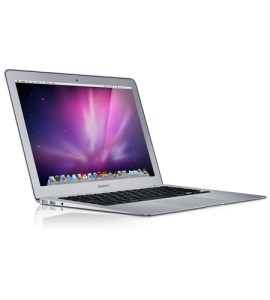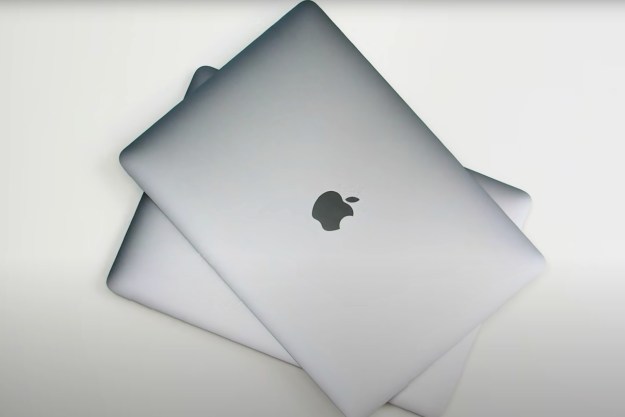
Industry reports and two sources claiming familiarity with Apple’s product notebook product roadmap indicate that the Cupertino company is planning to update its super-slim MacBook Air line with Intel’s latest Sandy Bridge processors this summer, with Cnet reporting their sources expect the update to happen in June. If true, the update could mark a significant performance boost for the notebooks, which have been lauded for their battery life and thinline design, but have traditionally lacked the processing power of their less-svelte brethren. MacBook Airs currently use low power Intel Core 2 Duo processors.
Other industry watchers are skeptical MacBook Airs will be updated so quickly: The current MacBook Air line was just introduced by Apple in October, 2010; a March refresh would be a comparatively rapid product revision for Apple, which historically updates its notebook systems roughly once every nine to twelve months. To date, the MacBook Air line has lagged behind that pace.
If true, the Sandy Bridge processors included in MacBook Air models would probably be corrected versions of the Sandy Bridge chip with corrected SATA functionality—somewhat ironic, since the MacBook Air lacks an internal optical drive. Two weeks ago Intel revealed a flaw in its Series 6 Sandy Bridge processors that caused the company to halt shipments; Intel has since resumed shipping the flawed chips to manufacturers on conditions that they now be used in ways the flaw could impact consumers—the issue impacts handle of SATA storage devices in some circumstances, not the processor itself. Corrected chips are expected to begin shipping in bulk by April.
Previous reports have had Apple preparing to refresh the upper end of its notebook line, the MacBook Pros, as early as next month. Industry speculation has centered widely on the top-of-the-line models using Intel’s latest Sandy Bridge chipsets; if so, the design flaw may introduce a delay in Apple’s plans. Numerous other manufacturers have delayed or offered warranty replacement for systems using impacted Sandy Bridge chipsets. However, even in high-end MacBook Pros, the SATA flaw in Sandy Bridge chipsets is unlikely to pose a problem: the first two SATA devices handled by a Sandy Bridge chip are reportedly unaffected by the issue, which would enable device manufacturers to ship systems with (say) a SATA hard drive and optical drive. Apple MacBook Pros have never had external eSATA connectivity, opting instead for USB and FireWire 400/800 connectivity.
Intel’s Sandy Bridge processors are the first to feature an integrated HD-capable graphics controller built directly into the chip for improved performance and reduced power consumption.
Editors' Recommendations
- Best laptop deals: Save on the Dell XPS 14, MacBook Pro 16 and more
- Best Apple deals: Save on AirPods, Apple Watch, iPad, MacBook
- iPad Pro M4 vs. MacBook Air M3: a harder choice than ever
- Here’s everything we know about the M4 MacBook Pro so far
- This 13-inch MacBook Air deal cuts the price by $150


